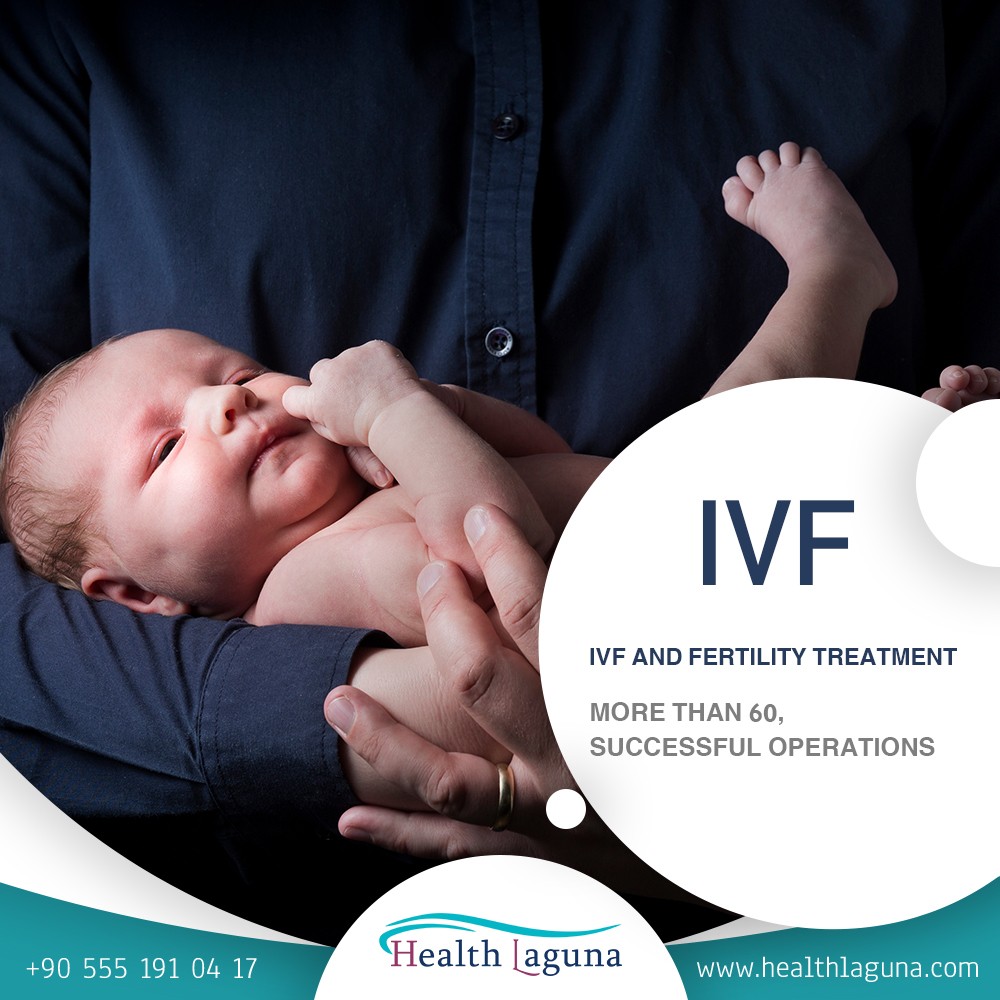
About the process …
In vitro fertilization IVF is a common treatment for infertility.
Ovulation is stimulated first to develop mature eggs using “fertility medications.”
Ultrasound monitoring determines the number and growth of eggs along with blood hormone levels to determine when they will mature.
The fertility doctor then takes the eggs from the ovaries using a small needle, while under light anesthesia and fertilizes them with sperm in a specialized laboratory.
After fertilization has occurred, the eggs are developed into embryos.
After three to five days, the specialist returns the embryos to the uterus.
Who are the candidates for IVF …
IVF can be used in the treatment of infertility in the following patients:
Blockage or closure of the fallopian tubes or the channels.
Low sperm count or sperm movement in males.
Females with ovulatory disorders, early ovarian failure, and uterine fibroids
Individuals with a genetic disorder
Unexplained infertility
The necessary tests before the operation …
Before IVF begins, women will first undergo …
Ovarian reserve test, as this includes taking a blood sample and testing it for the follicle stimulating hormone level (FSH). (The results of this test will give your doctor information about the size and quality of your eggs . )
Your doctor will also examine the uterus, this may include an ultrasound procedure, which uses high-frequency sound waves to create the uterus image.
During ICSI, the doctor injects sperm directly into the egg. ICSI is a part of the IVF process.
Men will need to have a sperm analysis test. This includes giving a sample of semen, which the laboratory will analyze to know the number, size, and shape of the sperms.
Possible complications …
Like all operations and medical procedures, IVF has some potential risks and side effects. These include:
Bloating
Cramping
Numbness of breast
Mood Swings
Headache
Bruising due to open air
Allergic reaction to medications
bleeding
infection
Infections
Constipation
Your doctor can talk to you about any questions or concerns you have about the risks of IVF and side effects.
And more about that period and how to go through it …
IVF can be emotionally difficult, both for the couples and their families.
Many people who have IVF treatments experience depression and anxiety in the immediate postoperative period.
Talking to people who have experienced fertility and IVF can be really helpful.
From preparing for the process to the recovery stage ..
1 – Before the operation:
Fertility medications are prescribed to stimulate egg production.
2 – During the operation:
Obtaining eggs is done through simple surgical procedure, where imaging uses ultrasound to guide a hollow needle through the pelvic cavity into the ovaries .
Medicines are provided to reduce and eliminate potential discomfort.
The husband is required to give a sample of sperms, which are prepared for inclusion with eggs.
In a process called fertilization, sperm and eggs are mixed together and stored in a laboratory dish to encourage fertilization.
In some cases where the likelihood of fertilization is lower, sperm injections can be used inside the tubes.
Through this procedure, one sperm is injected directly into the egg in an attempt to achieve fertilization.
The egg is monitored to ensure fertilization and cell division occurs.
Once this occurs, it is considered an egg fertilized of embryos.
Embryos are usually transferred to the woman’s uterus three to five days after egg acquisition and fertilization.
A catheter or small tube is inserted into the uterus to transfer the embryos.
This procedure is not painful for most women, although some may experience mild cramps.
If the procedure is successful, the implant usually takes place six to ten days after the egg is retrieved.
3 – After the operation:
After the procedure, you should remain in bed for several hours and can leave after four to six hours.
Your doctor will likely perform a pregnancy test for you about two weeks after the embryo is transferred.
4 – The recovery phase:
You will be advised by your doctor about the instructions and pattern of that period after the procedure to avoid any possible complications or damages to you, madam.
If you suffer from some problems or some possible complications, the doctor will see what is necessary for you and what is appropriate for the nature of your general health condition and what can be prescribed to you until you reach complete recovery.
About medical tourism in Turkey …
It is one of the most beautiful and best countries at all, with medical tourism. It has beautiful beaches, clear skies, and breathtaking views. It also contains a lot of global touristic sites. In addition to this, it offers a wide range of different treatment options that suit all cases, and this is due to the experience and skills of the surgeons over there.
How much does these procedures cost in Health Laguna …
At Health Laguna we try hard to search for our patients for ideal conditions as well as for hospitals and medical centers of high quality and at the best prices in Turkey. Expenses change according to the individual case. You can request your quotation by writing to us, and we will answer you as soon as possible.
About the integrative services we provide here at Health Laguna ..
* Our services are not limited to securing appropriate treatment, but extends to provide free consultancy specialized in each case, and arrange the most appropriate appointments for patients from the reception at the airport to the presence of an interpreter for the duration of treatment.

